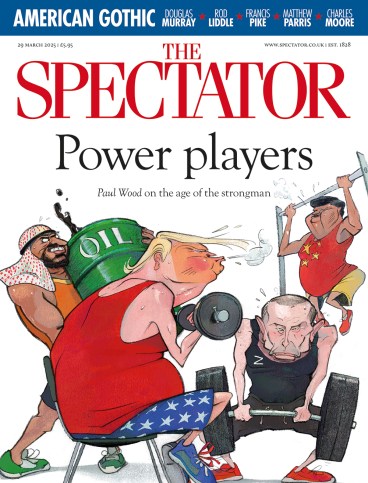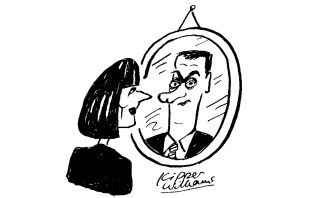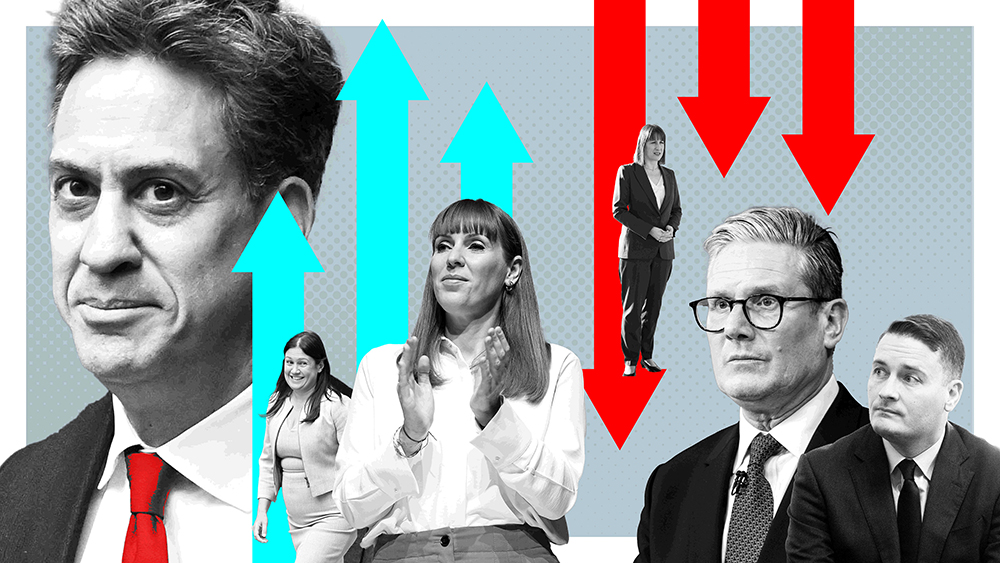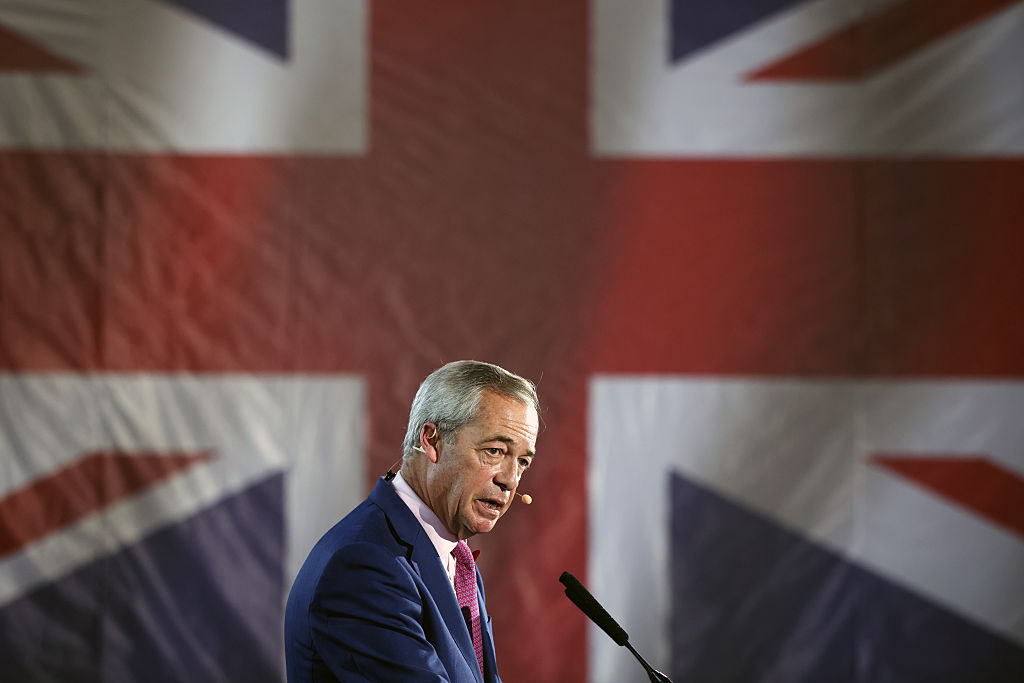
A few months ago, over a plate of bone marrow, a Tory adviser was considering how best to kneecap Labour. With the government’s working majority at 168, opposition debates could only go so far. Viral attack videos were hard to come by and CCHQ was depleted. Then the adviser hit upon something: a league table of cabinet ministers ranked by the Labour membership.
It was an idea that arose from bitter experience. The Conservative-Home website has for years been running a grassroots ranking, showing which ministers were favoured by party members. It has proved such an accurate tracker about who was in pole position for any tilt at a leadership contest that ministers would obsess over it. Government decisions were made on how actions could shape the next month’s ratings. Who’s up? Who’s down? Was a speech required? Or a negative briefing on a colleague getting too big for their boots? For the Tories, the league table was a destabilising force in government.
Now the website LabourList is launching a membership ranking of Keir Starmer’s cabinet. The Tory adviser has had his wish fulfilled – and by a site that is supposed to be on Labour’s side. It’s already sowing seeds of discontent in the party. Of the 27 cabinet members, the golden boys and girls favoured by the party leadership – such as Rachel Reeves and Wes Streeting – find themselves in the bottom five among Labour members. Starmer is languishing in 17th place.
Meanwhile, the ministers who tend to provoke the use of expletives among No. 10 aides are enjoying strong grassroots support: Ed Miliband, Angela Rayner and Lisa Nandy are the top three. Miliband’s net-zero zealotry and Rayner’s flirtations with the left of the party cause concern in Downing Street, while Starmer’s chief of staff Morgan McSweeney once described Nandy’s politics as ‘no gender, no borders, no Queen’.
‘I don’t think Wes or Rachel would have a shot [in a future leadership race] now, which is a shame as Rachel landed really well for me on the doorstep ahead of the election,’ says one of the 2024 intake. ‘For me, it’s between Angela and Bridget.’ Education Secretary Bridget Phillipson may have faced a wave of criticism in the media over her schools bill, but she sits comfortably in the top ten on the list. Whatever the critics say, many Labour MPs – and members – love legislation which socks it to private schools.
Some worry that the goals of secure borders and making streets safer will be compromised with severe savings
This week’s Spring Statement will probably cement Reeves’s place at the bottom of the table. The Chancellor has announced £15 billion of spending cuts as she tried to reassure the bond markets after her fiscal headroom disappeared. Adding insult to injury for many Labour MPs, this included additional last-minute welfare cuts after the Office for Budget Responsibility (which Reeves previously lionised) concluded that her initial plans did not save as many billions as claimed. Starmer has argued for the need for welfare cuts, claiming that the current system is ‘morally indefensible’ – but that case is harder to make when the Treasury is making emergency changes to please a financial watchdog.
Many Labour MPs are worried by the lack of emphasis on helping the vulnerable. ‘I’m not sure this is something we can explain, let alone sell on the doorstep,’ says a member of last year’s intake. Government advisers have had to hold extra briefing sessions with backbenchers to try to get them on side; some of these early sessions in No. 10 backfired when attendees were disgruntled not to have a minister present. ‘It’s been messy,’ admits a government source.
More difficult decisions loom. With the growth forecast for this year halved, the coming spending review is tighter than ministers would wish. With the spending envelope reduced by £6.1 billion, unprotected departments face real terms spending cuts of 0.8 per cent a year from 2026.
Ministers already felt aggrieved about Reeves’s first Budget, where she raised taxes largely to fund the NHS, creating losers elsewhere. Now she is funding defence with no tax rises, so other areas will be hit. As the former Labour spinner John McTernan recently put it: ‘When are the cabinet going to realise they can outvote the Prime Minister and the Chancellor on their own?’

Ministers with an interest in long-term political careers might want to start fighting back a bit. The spending review is seen as the natural point when the axe is going to fall. Which ministers are going to cut up rough about what is being done to them?
There are already signs of friendly fire. So far, no minister has publicly criticised the Treasury approach, yet it hasn’t gone unnoticed that several have been less than effusive about Reeves of late. When the housing minister Matthew Pennycook was asked about her decision to accept ‘freebie’ tickets to a Sabrina Carpenter concert, he replied: ‘I don’t personally think it’s appropriate.’ Angela Eagle, asked by a Tory MP to defend the foreign aid cut, simply suggested that he ‘raises that issue with the Chancellor’.
On spending, some are better placed to advance an argument. After I reported disquiet in the Department for Education over proposed cuts, Phillipson was accused of adopting a ‘bleeding stump’ approach – suggesting that government saving decisions, such as ending universal free meals for early years pupils, are politically toxic.
Yvette Cooper, the Home Secretary, and Shabana Mahmood, the Justice Secretary, are among those seen as the most likely to push back. Law and order and the justice system are meant to be a key part of the government’s offer to voters, yet these departments are vulnerable to large cuts. ‘If you keep cutting the MoJ there will be unintended consequences,’ says a government source.

Event
Spectator Writers’ Dinner with Matthew Parris
On law and order, those around Cooper worry that the goals of secure borders and making streets safer will be compromised with severe savings. The last time Labour was in government, Cooper proved to be a formidable force against the then chancellor Alistair Darling.
Rayner has long had a strained relationship with Starmer’s team. Although that relationship has improved over time, government figures are still critical. ‘She is being carried by her ministers,’ says one source. Yet it was a sign of her influence that one of the good-news announcements from Wednesday was £2 billion for affordable housing.
In Downing Street, there is more interaction with ministers these days as aides try to engage in performance management to improve delivery. Yet as the spending review gathers pace, ministers don’t only need to think about pleasing No. 10. If the latest league table is anything to go by, doing so comes with strings attached.








Comments